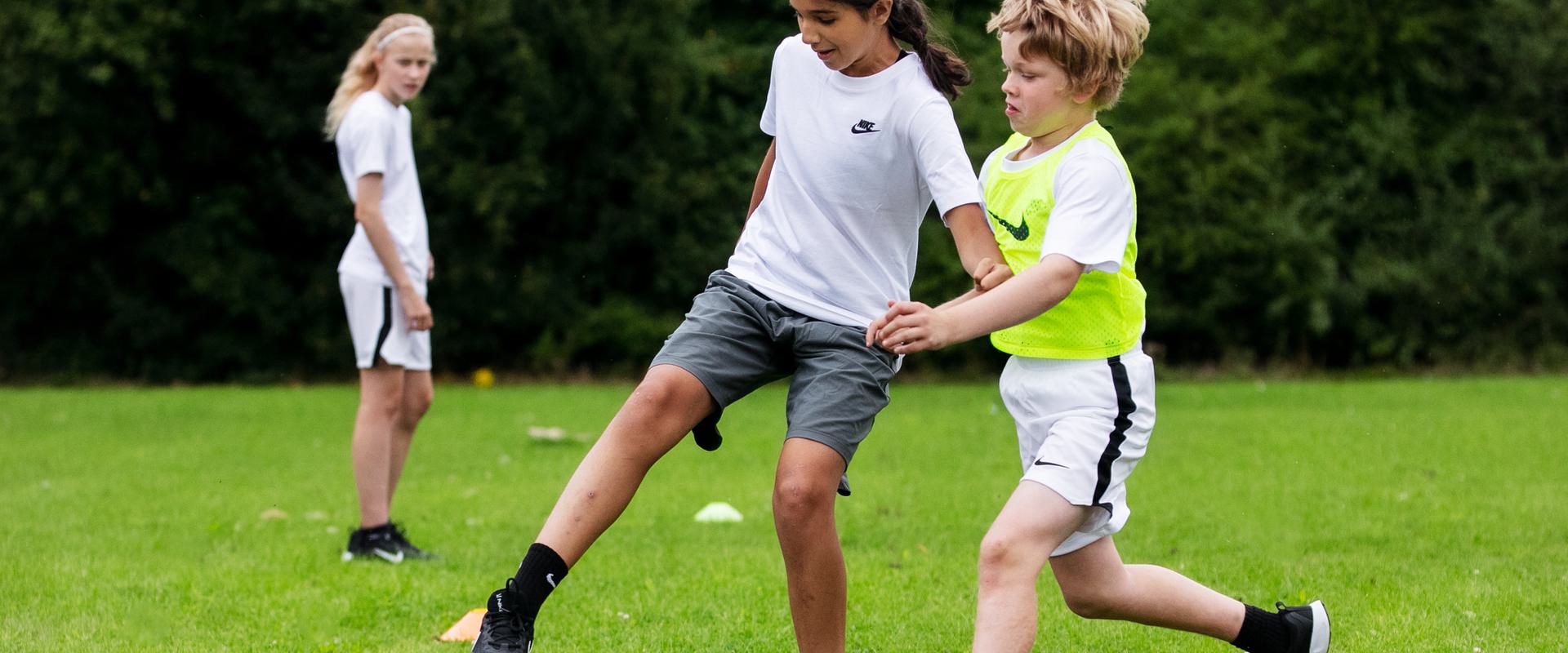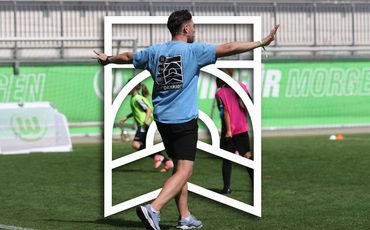
Re-thinking Football for Young People
with Professor Jim McKenna

Do you coach in a sport with on-going tensions?
Recent work by management guru Robert Quinn (‘The Positive Organisation'’, 2015), describes how the best organisations learn to thrive despite these tensions. In this understanding ’tension’ refers to the prominent ongoing rivalries that characterise every organisation. In coaching these are often when fairness meets desire to win, engagement meets competiveness, desire to win meets co-operation and so on. Recently, the community coaching groups I have been working with have expressed similar issues. Are coaches either prepared, or being prepared, for thriving in this brave new world?
As governments impose new standards for funding, resolving these tensions will be imperative. Typically, securing new funding relies on new ways of working to attract and retain groups that are new to existing coaches.
People in these new ‘customer’ groups often experience distinctive challenges in turning up for coaching sessions and still more around coming back for further sessions. They also bring different expectations and little appetite for facing existing ‘tensions’. Indeed, they will create their own tensions for coaches, not least around expectations about commitment and competence.
Recently I have noticed other important tensions in coaching community football. Elements of community provision are still at odds with what we know most helps developing young people. The old chestnut of competition – often the issues are about premature competiveness and what is allowed and/or endorsed under that banner - is still there. Then there’s how to fully satisfy girls’ huge interest in playing the game. More fundamentally, there’s the silo-thinking that favours developing technically-focused coaches over those who know how to align a whole community system so it makes ‘wider’ participation easy.
Equally fundamental is the over-reliance on participants’ personal drive to become involved. It’s just too easy to assign poor attendance, or even non-attendance, to shortfalls in the children and young people who were never going to be attracted to what they were offered or what involvement entails.
Checking for interesting soccer quotes from people more knowledgeable than me, I came across this unattributed expression; ‘It doesn’t matter if you are a boy or a girl, the club where you play, if are you in any club, or how old you are. What matters is that you love football.’ This is a one-eyed understanding.
Girls, despite their obvious enthusiasm and no little competence, still face immense problems being involved in local provision; these are beyond tensions and often they reflect outright discrimination. For coaches this implicates the wider system of coaching and the social network that supports – and sometimes spoils - local provision. Who’s helping there?
It’s wishful thinking to imagine that new audiences start out loving football, but they may grow to love it when it delivers positive challenges, personal growth, and social integration with friends.
That’s what twenty-first century community coaching needs to be all about. We are now past of the days of ‘build it and they will come’; what has been built often doesn’t attract new audiences. Today’s children are demanding in ways that coaches have never seen before and, like generations of coaches before, today’s coaches will have to respond to that in the best ways we can. If the best time to start all this was some time ago, then the second best is to start today.
Contributor:

Professor Jim McKenna
A professor of Physical Activity and Health, Jim studies behaviour change at a range of levels; individual, social and whole community. He is Director of the Active Lifestyles research centre in the School of Sport. Jim's current work involves evaluation of some substantial physical activity interventions. These include projects in Calderdale (centred on Halifax), Leeds and Doncaster. Each of these projects has a distinctive 'style'; his work aims to complement the preferred style, using principles drawn from behaviour change science, implementation science, whole systems approaches and human-centred design.
Comments
Related Pages


